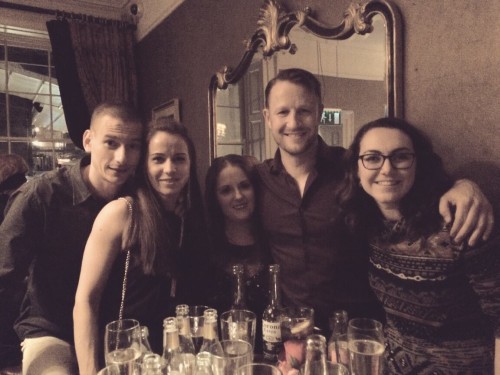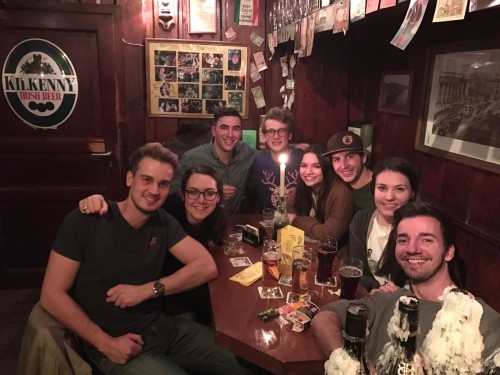Since I arrived in August, Humans of Dublin as told by Megan McNulty has been unceasingly growing as a catalogue (mostly in my mind of course) of fascinating characters and touching stories about people – like myself – who are trying to make a living in this weirdly untouched-by-time yet also increasingly cosmopolitan city of Dublin.
The latest addition includes another fortuitous train meeting with a young woman nostalgic of her ‘old life’ back in the country as well as a lovely experience with a Polish taxi driver who confided in me his deepest relationship fears and hopes.
The unstoppable conversationalist that I am has loved meeting the variety of people who call Dublin home, but it has recently occurred to me that many of my impromptu tête-à-têtes – especially the ones I cherish as most stimulating and inspiring – would have never occurred in the United States.
I characterize those conversations, which I will undoubtedly remember forever, as being part of the long-standing Irish tradition of partaking in ‘The Great Debate.’ Though I believe most people here are more outwardly friendly than many Americans (don’t tell Uncle Sam I said this), the Irish are also simultaneously much more likely to broach the tumultuous topics of religion and politics. Whether at a pub several pints deep, on a street corner anticipating a changing light, or even at a fancy restaurant dressed to the nines: one living in Dublin cannot escape the issues which many Americans would not dream of discussing in the public sphere.
It’s not only questions about one’s political party or who was voted for in the last election. These discussions truly leave no issue out of bounds – from the size of government to social welfare policy, to abortion law and even the role of the Catholic Church. Nothing is safe.
Religion!? Politics!? How rude, you may say. Why would the Irish purposely create tension among friends, colleagues, and even strangers, and why would they not just leave their personal opinions to their ballots and pews? These questions are not unlike my initial reaction, but I now believe that foreigners like myself could learn from the Irish tendency to look awkwardness in the eyes and face disagreements head on.
Participating in The Great Debate doesn’t create tension; it undermines it. It doesn’t sustain grudges and hurt feelings but rather incites reconciliation and mutual respect. When I defend a Church program and my counterpart disagrees vehemently, there are no fist fights or exchanges of profanities. We clink glasses, say sláinte, and laugh thunderously. Yes! We accept that we have different opinions and value the opportunity to challenge our preconceived notions.
This tradition of partaking in The Great Debate sets Ireland apart from so many nations. I have seen that it enhances the entire population because people become increasingly open, honest, and politically and socially adept. So although many people think a trip to Ireland will only impart a greater appreciation for whiskey, Guinness, and leprechauns; I have found that there is a much greater reward hidden just beneath the surface of a chat in a pub or an interaction in a shop.
Smiles and laughs after a lengthy talk at my gym’s Christmas party!
And talking with new friends about German and US politics in a classic Irish pub!!


